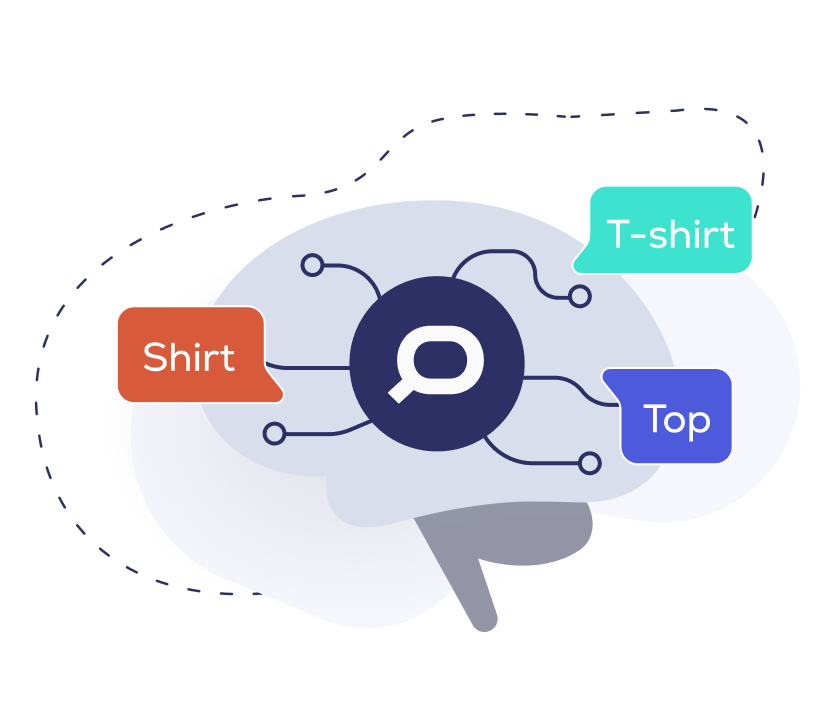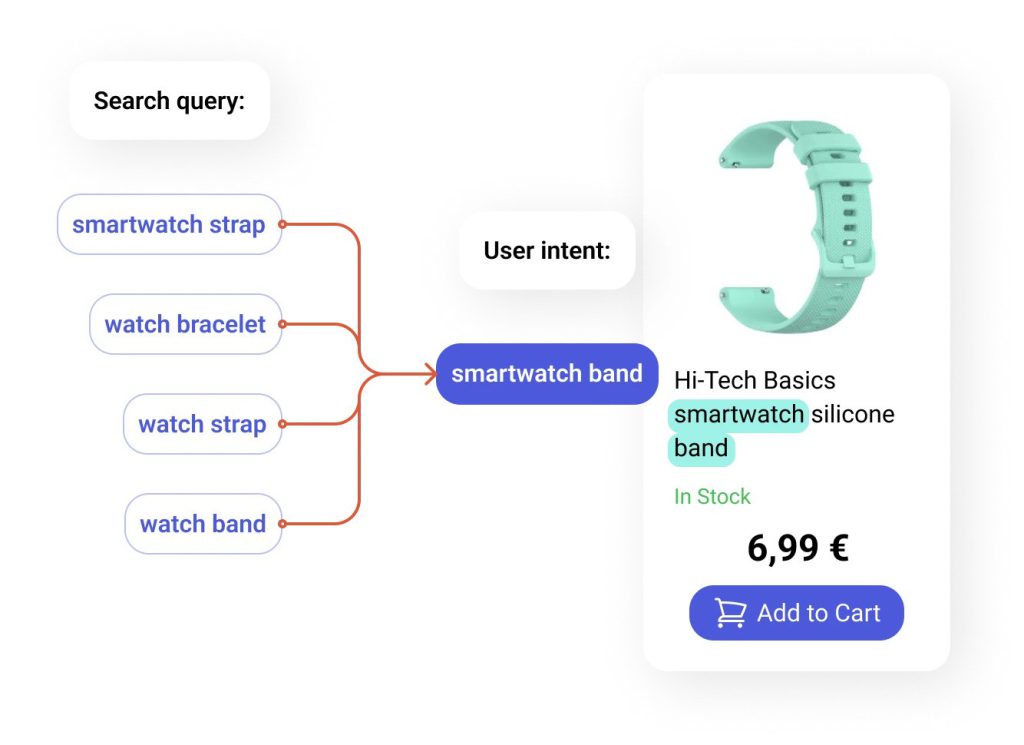Alleviate Manual Synonym Management with AI
Synonym management is a vital way to optimize your online store’s search results, however, many retailers struggle with the task as it is extremely time-consuming.
In this manual process, you need to tag products and keywords with relevant synonymous keywords, since shoppers often don’t search for products in the exact same way they are named in the product catalog.
But now, with the advent of advanced Artificial Intelligence, this process can be (mostly) automated, freeing up your team’s valuable time while ensuring your customers find what they’re looking for.

What is Synonym Management
A synonym is a word or phrase that means exactly or nearly the same as another word or phrase in a given language. Without proper synonyms in place, a search query may not match any products, resulting in either:
- A zero results page, leading to a missed sales opportunity, or
- a partial match, where the search engine returns although returns some relevant products, but not all.
You cannot expect shoppers to know your store’s product terminology. Instead, you need a system to understand visitors’ search intent and set up synonyms so they can find what they’re looking for, regardless of the specific product naming conventions.
Adding synonyms to keywords helps increase the relevant result count for different search queries. You can also set negative synonyms to eliminate irrelevant results. There are even more synonym options, such as bi-directional synonyms or product synonyms, you can check this article for details.
What makes synonym management difficult and time consuming?
- Prioritization
There can be tens of thousands of different search terms that visitors are searching for on a webstore, so it is impossible to set up proper synonyms for all of them, you need to efficiently select the most common terms to handle.
- Finding the right synonym
Identifying the correct synonyms for search terms is challenging. It requires understanding customer intent and ensuring the selected synonyms accurately match the products they are looking for.
Strategies for effective synonym management

Search term prioritization and finding the right synonyms require understanding and analyzing your search data.
When you’re getting started, a common practice is that you should look at popular search queries that have a low click-through rate (CTR).
Another useful tactic is investigating common search terms that shoppers use but then click on different results.
Salesforce B2C Commerce offers built-in Search Analytics that help you understand how users interact with search results. By tracking popular search terms and products, you can make search results more relevant and increase the conversion rate for your online store.
If you would like to have more granular and complex analytics, you can do so with various third-party vendors from the Salesforce AppExchange.
Synonym management in Salesforce B2C Commerce
Salesforce B2C Commerce offers built-in synonym management. You can configure synonyms and negative synonyms for each search term. Salesforce offers brand synonyms too, which are automatically generated for all the products in your product catalog (by the product system object’s brand attribute values). You can turn this feature off.

Using AI Search to minimize manual synonym management
Based on what’s discussed above, you can get a feeling that manual synonym management is a very meticulous and time consuming, but also critical task for your online store.
One of the main use cases for Artificial Intelligence platforms, like Salesforce’s Einstein 1 is that they can minimize such manual optimization tasks, so they are especially helpful in this case too.
AIs helps automating synonym management by the language model they leverage. Their model inherently identifies similar terms, and this functionality can directly be utilized for generating and maintaining synonyms.
AI models utilize vector databases, where every product in a retailer’s product catalog is vectorized. The model then calculates the nearest neighbors of a query vector to return products with the closest relation to the query. This process is natively able to find similar keywords too based on closeness in the vector space.
For example, some SFCC third-party providers offer features that automatically recommend problematic keywords that need synonyms to be set, and some even suggest specific synonyms for these keywords.
You can find even more use cases of AI in the E-commerce industry in this blog post.
Wrap Up
Synonym management is crucial for optimizing search results in online stores, but it is a time-consuming and complex task. Traditionally, retailers manually tag terms and products with relevant synonyms to ensure customers find what they’re searching even when not knowing the exact product names.
Advanced AI technologies now allow for the automation of this process, saving valuable time. AI models, like Salesforce’s Einstein 1, utilize vector databases to identify and suggest relevant synonyms automatically, enhancing search relevancy and boosting conversion rates.


